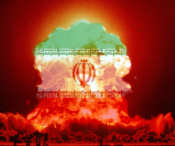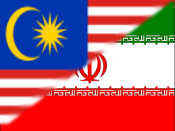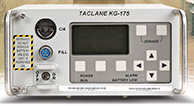 The Institute for Science and International Security recently released an interesting report on Germany’s criminal prosecution of Vanaki Mohsen, who was accused of exporting various dual use items to Iran in violation of Germany’s War Weapons Control Act. The prosecution arose from Vanaki’s brokering of the export of certain high-speed cameras that could be used in the development and testing of nuclear weapons. Vanaki brokered this sale from a Russian company to an Iranian front company in the U.A.E.
The Institute for Science and International Security recently released an interesting report on Germany’s criminal prosecution of Vanaki Mohsen, who was accused of exporting various dual use items to Iran in violation of Germany’s War Weapons Control Act. The prosecution arose from Vanaki’s brokering of the export of certain high-speed cameras that could be used in the development and testing of nuclear weapons. Vanaki brokered this sale from a Russian company to an Iranian front company in the U.A.E.
Although the ISIS report isn’t clear on this, it appears that Vanaki must have been charged under section 19 of the German law. Although the law prohibits exporting or brokering of “war weapons,” it is likely that the high-speed cameras were considered a dual-use item rather than a war weapon. In that case, section 19 would prohibit the brokering of the item to Iran if, and only if, Iran has a nuclear weapons program.
This lead to an unusual step by Vanaki’s defense which introduced the United States’ 2007 National Intelligence Estimate (“NIE”) on Iran which, the defense claimed, concluded that Iran had abandoned its nuclear program in 2003 and had not resumed it by 2007 when the high-speed cameras at issue were sold to Iran. The German trial court agreed and acquitted the defendant.
The prosecution appealed, and the appeals court sent the case back to the trial court for another trial. In reaching its decision, the appeals court pointed out that the trial court put too much reliance on the 2007 NIE. The NIE’s conclusion that it was “moderately confident” that Tehran had not resumed its nuclear weapons program was far from proof that it had, in fact, not resumed that program. The appeals court also relied on a supplemental report from the Bundesnachrichtendienst (“BND”), Germany’s foreign intelligence service, which discussed the development by Iran of a missile launcher as well as similarities in procurement practices by Iran and countries known to have nuclear weapons programs, such as Pakistan and North Korea. Based on this report, the appeals court found that it was now likely that Vanaki would be convicted on a retrial and sent the case back to the trial court.
Two things bear noting here. First, Germany’s export laws in this case, and in other cases that involve dual-use items, impose an intolerably heavy burden of proof in export prosecutions. In effect, the state has to prove that the country in question has a nuclear program, an element of proof that would be difficult and almost necessarily speculative in the case of many countries which are believed to be developing nuclear weapons but have not yet admitted that fact. Second, it appears that the BND assessment must provide some fairly certain intelligence demonstrating the existence and scope of Iran’s nuclear program. This may explain why Germany, unlike some other EU countries, has recently seemed more interested in restricting certain exports to Iran.

 Posted by
Posted by  Category:
Category: 

 An excellent
An excellent  The exquisitely-monikered and equally notorious Monsieur Jacques Monsieur (or Mister Mister as he is affectionately known here)(pictured on the left) was nabbed last Friday when he arrived in New York and then sent to Mobile, Alabama, to face charges that he conspired to export F-5 jet engines and parts to Iran. In February 2009, Monsieur allegedly contacted an undercover U.S. agent looking for F-5 engines and parts. He then met with the undercover in both Paris and London.The indictment alleges that after those meetings, in July 2009, Monsieur wired $110,000 to an account in Mobile, Alabama, in payment for F-5 parts, and the rest, as they say, is l’histoire.
The exquisitely-monikered and equally notorious Monsieur Jacques Monsieur (or Mister Mister as he is affectionately known here)(pictured on the left) was nabbed last Friday when he arrived in New York and then sent to Mobile, Alabama, to face charges that he conspired to export F-5 jet engines and parts to Iran. In February 2009, Monsieur allegedly contacted an undercover U.S. agent looking for F-5 engines and parts. He then met with the undercover in both Paris and London.The indictment alleges that after those meetings, in July 2009, Monsieur wired $110,000 to an account in Mobile, Alabama, in payment for F-5 parts, and the rest, as they say, is l’histoire. Chi Tong Kuok, a citizen of the PRC, was
Chi Tong Kuok, a citizen of the PRC, was  Yesterday, the United States Court of Appeals for the Seventh Circuit
Yesterday, the United States Court of Appeals for the Seventh Circuit 

